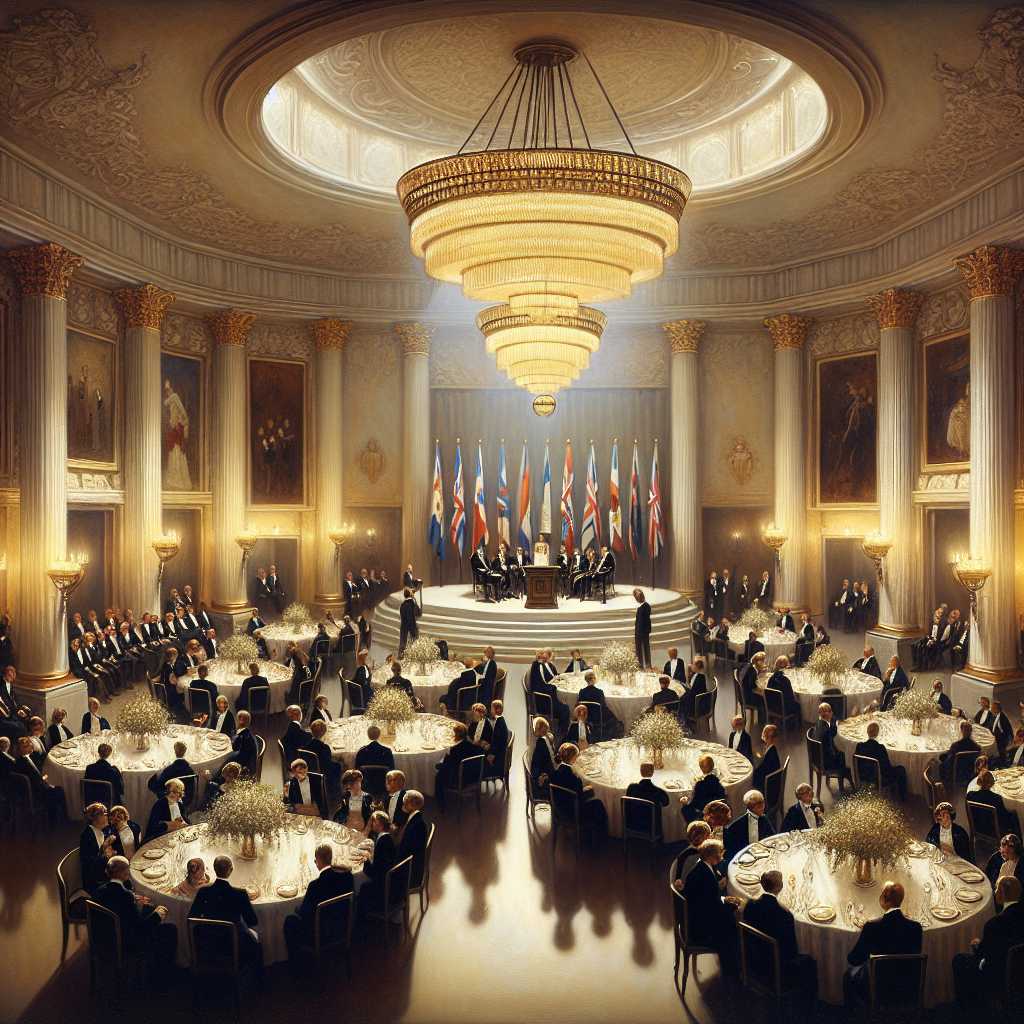The Al Smith Dinner: A Tradition of Humor and Unity in American Politics
Introduction to the Al Smith Dinner
The Alfred E. Smith Memorial Foundation Dinner, commonly known as the Al Smith Dinner, is an annual white-tie fundraiser in the United States organized by the Catholic Archdiocese of New York in support of its charitable works. Founded to honor the memory of Alfred E. Smith, the first Catholic presidential candidate and four-time governor of New York, the event has grown over the decades to become a notable fixture in American political life. Known for its attendees’ light-hearted speeches and humorous roasting among political figures, the dinner embodies a rare spirit of bipartisan camaraderie in the often-divisive atmosphere of American politics.
Historical Background of the Al Smith Dinner
The dinner began in 1945 after the death of Al Smith, who rose from Lower East Side beginnings to change the face of American politics. Widely respected for his advocacy for workers and immigrants and his reform-minded leadership, Smith’s legacy is integral to understanding the kind of principles the dinner promotes – those of charity, humor, and mutual respect among leaders.
Significance in the Political Calendar
Taking place in late October each year, the Al Smith Dinner typically garners increased attention during election years, just ahead of the November Presidential elections. This timing adds a layer of political weight and intrigue to an event billed more as a cease-fire than a campaign battlefield. As candidates spend the majority of the year entrenched in aggressive campaign strategies, this dinner offers an opportunity for them to exhibit grace and good sportsmanship.
Presidential Candidates and Bipartisan Humor
One of the highlights during election years is the participation of presidential candidates from both major political parties. Much attention is given to their speeches since it provides a platform for candidates to show their more relaxed side and sense of humor, as well as their capacity for self-reflection and humility. The tradition harks back to 1960 when nominees for president were first invited to speak together at the dinner.
Political Implications and Public Perception
Critics and supporters alike view the dinner through certain lenses. Some see it as a healthful tradition that serves as a reminder that people with vastly different political views can be cordial and philanthropic together. Others criticize it for potentially trivializing serious political differences or fostering what some perceive as uncomfortable coziness between power brokers.
Fundraising and Charitable Impact
Despite its political spectacle, it’s important not to forget that the primary purpose of the dinner is charitable fundraising. The proceeds go to support a variety of causes within healthcare, education, and child welfare services served by the Archdiocese. Through substantial donations, often worth millions of dollars raised with each dinner event, these funds represent vital support for New York City’s most vulnerable populations.
Recent Years’ Dinners Demonstrating Civility
Recent dinners have waxed and waned in their success at reaching across party lines with goodwill. They have ranged from friendly ribbing between candidates sharing a stage to uncomfortable moments indicative of broader polarization within American politics. Regardless of these swings in tone, the Al Smith Dinner continues to be an anticipated convergence where rivalry is set aside – if only for an evening – for commonality and laughter.
The Legacy of Al Smith Upheld
The Alfred E. Smith Dinner does more than just bring politicians together; it maintains the aspirational tone that Smith set during his storied career – one which advocated for respectful dialogue amongst adversaries and service to others ahead of personal gain.
